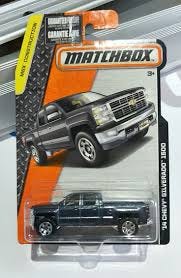When I was 15, I hinted around to my parents that I wanted a pick-up truck for Christmas. Yes, a real one. I told them the color, make, model, etc. For some reason, I thought they could afford it and that I somehow deserved it (I was a teenager, don’t judge). Besides, other teenagers at school had trucks! Mind you, I already had transportation in the form of a 1969 Chevy Camaro.
They thought I was joking. I knew I wasn’t. Christmas morning came, and I approached the day with great anticipation. After all, I was getting a truck, or so I thought! I noticed one small gift wrapped neatly under the tree. I thought, “That’s it, that’s the keys.” I opened the box carefully. My excitement grew with every peeling back of the paper. When I got it open, there it was - a Matchbox truck. They thought it was funny. Me? Not so much. But it was a lesson for me in expectations.
Many of us have great expectations of others. We want them to perform in a certain way, act in a specific manner, or give us something WE want. And if those expectations go unmet, it can lead to frustration, anger, and disillusionment on our part.
There is a way to overcome this skewed perspective, though. And that way is, to expect more of ourselves than we ever expect of others and from others. That immediately shifts the focus and responsibility to where it belongs: on you, on me.
This isn’t a popular position in our current cultural milieu. After all, so many are more concerned about “My truth” and “My rights.” But that’s what makes this mindset more crucial than ever.
Jocko Willink, the former Navy Seal, calls it “Extreme Ownership.” In fact, he’s written a whole book about it. Extreme ownership doesn’t mean that everything that happens becomes your fault. But it does mean that how you respond to everything that happens to you becomes your responsibility.
So, change your expectations of others and challenge yourself even more. It will positively impact how you live, work, and relate to others. Now you know, at least, what to expect.

